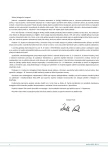-
Medical journals
- Career
IMPLICATION OF RANK LIGAND INHIBITION FOR THE TREATMENT OF SKELETAL RELATED EVENTS IN METASTATIC PROSTATE CANCER PATIENTS
Authors: D. Pacík
Authors‘ workplace: Urologická klinika FN Brno
Published in: Urol List 2010; 8(4): 58-61
Overview
Prostate cancer occupies one of the leading positions in the incidence of cancer among men. A typical feature of this disease, if not diagnosed and treated in early stage, is its ability to metastasize to skeleton which predisposes the patients to skeletal related events (SRE). Deepening knowledge on the pathophysiology field about the origin and development of metastases reveal new opportunity in the care for metastatic castration-refractory prostate cancer patients. Denosumab, the RANK ligand inhibitor, significantly delays time to first SRE, reduces the risk of multiple events by 18% compared to zoledronic acid and represents a more potent alternative in the treatment of bone metastases in prostate cancer patients.
KEY WORDS:
RANKL - metastatic prostate cancer - denosumab - SRE
Sources
1. Ferlay J, Bray F, Pisani P et al. "GLOBOCAN 2002: Cancer Incidence, Mortality and Prevalence Worldwide", IARC CancerBase No. 5, version 2.0. Lyon, France: IARC Press, Available at: http://wwwdep.iarc.fr/ globocan/GLOBOframe.htm Accessed November 16, 2004.
2. The GLOBOCAN 2002 Database.
3. Dušek L, Mužík J, Abrahámová J et al. Epidemiologie solidních nádorů v ČR podle dat Národního onkologického registru za období 1977–2007.
4. Cooper RC, Chay CH, Gendernalik JD et al. Stromal factors involved in prostate carcinoma metastasis to bone. Cancer 2003; 97(3): 739–747.
5. Saad F, Gleason DM, Murray R et al. A randomized, placebo-controlled trial of zoledronic acid in patients with hormone-refractory metastatic prostate carcinoma. J Natl Cancer Inst 2002; 94(19): 1458–1468.
6. Saad F, Gleason D, Murray R et al. Zoledronic acid is well tolerated for up to 24 months and significantlz reduces skeletal complications in patients with advanced prostate cancer metastatic to bone. J Urol 2003 [1472].
7. Saad F, Lipton A, Cook R et al. Pathologic Fractures Correlate With Reduced Survival in Patients With Malignant Bone Disease. Cancer 2007; 110(8): 1860–1867.
8. Groot MT, Boeken Kruger CG, Pelger RC et al. Costs of prostate cancer, metastatic to the bone, in the Netherlands. Eur Urol. 2003; 43(3):226−232.
9. Smith MR, Egerdie B, Toriz NH et al., Denosumab in men receiving androgen-deprivation therapy for prostate cancer. N Engl J Med 2009; Aug 11. [Epub ahead of print]. doi:10.1056/NEJMoa0809003.
10. Coleman RE, Major P, Lipton A et al. Predictive value of bone resorption and formation markers in cancer patients with bone metastases receiving the bisphosphonate zoledronic acid. J Clin Oncol 2005; 23(22): 4925–4935.
11. Brown JE, Cook RJ, Major P et al. Bone turnover markers as predictors of skeletal complications in prostate cancer, lung cancer, and other solid tumors. J Natl Cancer Inst 2005; 97(1): 59–69.
12. Brown JE, Thomson CS, Ellis SP et al: Bone re-sorption predicts for skeletal complications in metastatic bone disease. Br J Cancer 2003; 89(11): 2031–2037.
13. Costa L, Demers LM, Gouveia-Oliveira A et al. Prospective evaluation of the peptide-bound collagentype I cross-links N-telopeptide and C-telopeptide in predicting bone metastases status. J Clin Oncol 2002; 20(3): 850–856.
14. Rajpar S, Laplanche A, Tournay E et al. Prognostic value of urinary N-telopeptide (uNTX) in patients(pts) with castration-resistant prostate cancer (CRPC) and bone metastases. J Clin Oncol 2008; 26(suppl; abstr 5138): 283.
15. Fizazi K, Bosserman L, Gao G et al. Denosumab treatment of prostate cancer with bone metastases and increased urine N-Telopeptide levels after therapy with intravenous bisphosphonates: results of a randomized phase II trial. J Urol 2009; 182(2): 509–516.
16. Fizazi K, Carducci MA, Smith M et al. A randomized phase III trial of denosumab versus zoledronic acid in patients with bone metastases from castration-resistant prostate cancer. J Clin Oncol 2010; 28(Suppl): 18.
Labels
Paediatric urologist Urology
Article was published inUrological Journal

2010 Issue 4-
All articles in this issue
- TREATMENT OF LOCOREGIONAL DISEASE IN PATIENTS WITH PENIS CARCINOMA
- MANAGEMENT OF EARLY STAGE TESTIS CANCER
- PENIS CARCINOMA IN THE POPULATION OF NIGERIAN MEN
- CONTEMPORARY CONCEPTS ON INGUINAL LYMPH NODE DISSECTION FOR PENILE CANCER
- PENILE CANCER: A THERAPEUTIC CHALLENGE
- TESTOSTERONE REPLACEMENT THERAPY AFTER PROSTATE CANCER: THE EMERGENCE OF A NEW CONCEPT IN CURRENT UROLOGIC PRACTICE
- THE MODERN ENDOCRINE EVALUATION OF THE INFERTILE MALE
- WHAT IS CONSIDERED EROTIC IN NONVERBAL COMMUNICATION
- A REVIEW OF THE INVESTIGATION AND MEDICAL MANAGEMENT OF BENIGN PROSTATIC HYPERPLASIA
- IMPLICATION OF RANK LIGAND INHIBITION FOR THE TREATMENT OF SKELETAL RELATED EVENTS IN METASTATIC PROSTATE CANCER PATIENTS
- Urological Journal
- Journal archive
- Current issue
- Online only
- About the journal
Most read in this issue- WHAT IS CONSIDERED EROTIC IN NONVERBAL COMMUNICATION
- TREATMENT OF LOCOREGIONAL DISEASE IN PATIENTS WITH PENIS CARCINOMA
- TESTOSTERONE REPLACEMENT THERAPY AFTER PROSTATE CANCER: THE EMERGENCE OF A NEW CONCEPT IN CURRENT UROLOGIC PRACTICE
- THE MODERN ENDOCRINE EVALUATION OF THE INFERTILE MALE
Login#ADS_BOTTOM_SCRIPTS#Forgotten passwordEnter the email address that you registered with. We will send you instructions on how to set a new password.
- Career

